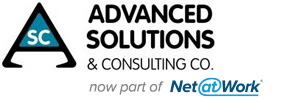What happens when a customer pays your business for products or services that you have not yet delivered? If you’re accounting on an accrual basis, this money will fall into the category of “deferred revenue.” The money’s in the bank, but your business hasn’t officially earned it yet. It should not appear on the income statement. Rather, it’s booked as a liability on the balance sheet.
So far, so good, but when can you actually recognize ther revenue and declare it on your income statement? That has traditioinally been a bit subjective and challenging. Revenue recognition has long varied from one company to the next. It can also lead to manipulation that results in under-paying of taxes and other problematic activities.
Today, a new generation of cloud-based Enterprise Resource Planning (ERP) software with accounting functionality is solving the deferred revenue challenge. As exemplified by Acumatica, these applications enable you to establish straightforward deferred revenue calculations that are compliant with current accounting standards.
There are at least three reasons to embrace the software-based approach to managing deferred revenue. From an internal perspective, you will want to know where you stand in terms of revenue and cash flow. You will also likely want to adopt the most efficient means of handling this accounting workload. Externally, you should want to report your revenue accurately to taxing authorities. Software makes all of this happen.
Automate Calculations
Acumatica’s Financial Management solution offers a Deferred Accounting Module to account accurately for revenue earned in future periods. The module also allows deferred revenue to automatically be calculated according to predetermined schedules. It can apply calculations to any affected transaction line item or inventory component. Deferred revenue is posted automatically and recognized in financial statements without interaction by accounting staff.
Increase Flexibility
With the Deferred Accounting module, revenue can be recognized across financial periods. The company can apply prorates and recognize when payments are received. The module complies with all recognition requirements, even when revenue is uncertain. It enables increased flexibility by billing and accepting payments in multiple currencies.
Streamline Compliance
The module allows for the automation of deferred revenue calculations. It can manage complex multi-element sales and can be customized to fit any company’s requirements and workflow. The module complies with the ASC 606 and IFRS 15 standards for deferred revenue. ASC 606 is a revenue recognition standard developed by the accounting industry’s main bodies. IFRS 15 is a comparable standard.
It establishes the principles by which a business reports on the timing, nature and uncertainty of cash flow from a customer.
Model Complex Requirements Easily
Schedules can be created based on already available templates or customized for your unique business needs to model complex requirements. The software can map customers to different AR accounts in the general ledger, override default document entries, and apply the correct offsets when payments are applied. The module can also calculate sales and VAT taxes to prepare for filing tax reports automatically.
Enhance Your Processes
Acumatica’s Deferred Revue module has many other features that will enhance the overall financial accounting process. These includie payment reversal, automatic payment application, sales commission calculation, overdue charges calculation, smart balances write-off, customer account security, audit trails, and customer balances and credit limit verification. The module is able to process sales orders and purchase orders with attached schedules and simplify expense amortization.
Acumatica’s Financial Management Solution works together with other Acumatica solutions and modules to improve any business’s overall ease and management.
Let us help you evaluate whether Acumatica’s Financial Management Solutions will work for your business. Contact us for a demo and informative discussion.

